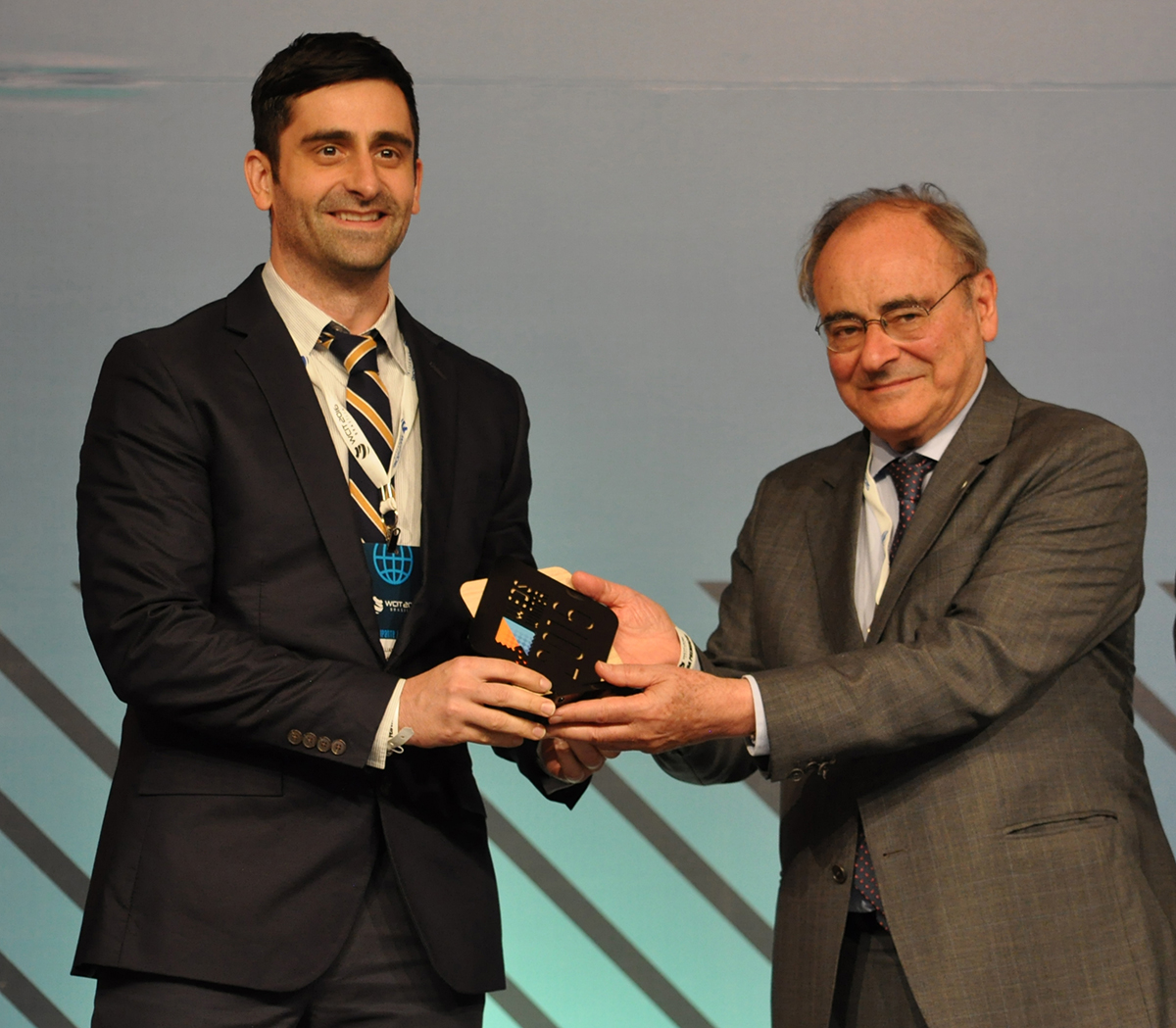Cornell Tech grads' Uru seeks wide-open (video) spaces
By Tom Fleischman

As media technology has evolved over the last century, so has the way advertisers hawk their wares.
From jingle-intensive radio spots during “The Dodge Victory Hour” and “The Lone Ranger” in the 1920s and ’30s to the ubiquitous and, to some, annoying online video ads of today, product makers have been working hard to place their brands front and center in people’s minds.
There will always be advertising, but does it have to be as disruptive as a 15-second spot before or during a YouTube video? Two recent Cornell Tech graduates are saying no.
Bill Marino, M.Eng ’16, and Brunno Attorre, M.Eng ’16, are co-founders of Uru, a software startup that uses computer-vision technology to automatically find blank surfaces inside video – a desk, a wall, even a plain T-shirt – that can host advertisements that are unobtrusive and unblockable. A third co-founder, Johan Adami, M. Eng ’16, now works for Flatiron Health but remains with Uru in an advisory role.
“We do think it’s a better way for brands to connect with audiences,” Marino said, “and once we get it out in the world, we expect video creators to embrace it as a more agreeable way to monetize, as well.”
Thus far, the technology has been received well. Marino and Attorre were in Brasilia, Brazil, Oct. 3-5 to receive the World Information Technology and Services Alliance’s Emerging Digital Solutions Award, at the World Congress on Information Technology. Uru is one of seven companies worldwide to be honored for creating innovative digital solutions.
In addition to the Uru team, also attending the event was Soumitra Dutta, dean of the Cornell College of Business. He delivered the keynote address, “The State of Global ICT [Information and Communications Technology] Readiness.” Dutta is also co-editor of The Global Information Technology Report.
This year has been a good one for Uru. In May, the company was one of four teams of master’s students, out of a field of 29, to win a Cornell Tech Startup Award, which totals $80,000 in pre-seed funding and $20,000 worth of space in the Cornell Tech co-working space in midtown Manhattan.
That same month, Uru won the Automated Imaging Association Vision Show Startup Competition, and just recently the group won a New York City Media Lab award.
“We’re winning a lot of awards, and that’s really nice validation,” Marino said, “but of course, as a startup your bigger goal is to make sure that customers feel the same way that audiences and academics do.”
Uru’s co-founders are just beginning to find out how the public feels about the technology. They’ve launched a beta version of the software and have video publishers and producers testing it. “We’re letting the two sides of our marketplace go in and experiment with it,” Marino said.
Ultimately, Marino and Attorre hope to offer their technology to companies like Instagram and YouTube, to give their users a way to monetize their content.
Marino admits he’s heard from people concerned about a technology that finds an empty space in someone’s skateboarding video, for example, and embeds a Vans shoes logo onto it. He said for that reason, Uru is proceeding slowly.
“What we’re doing first is targeting people who already own their content, and they just want to monetize it in a new way,” said Marino, 37, who earned a law degree from Columbia and spent a dozen years as a litigator before entering the tech world.
“We think there’s just a slow and gentle roll-out period,” he said, “where we’re showing people that this is a new, great way to monetize your art, and ‘don’t you want to be part of it?’ And then they’re eagerly opting in.”
Another concern is making sure ads are placed appropriately, said the 26-year-old Attorre, who spent four years as a software engineer in his native Brazil, at JPMorgan Chase and then at e-commerce startup Buscapé.
“You don’t want, say, a Kellogg’s ad to appear in a street-fighting video,” he said. “And finding out if the video is safe for some brands is tied to computer vision problems that people have tackled over the years.”
As technology has evolved, the way companies reach potential customers has, as well. Uru is banking that their idea will one day become part of the landscape.
“I think a lot of people, especially young people, are rejecting the obtrusiveness of the past as far as advertising goes,” Marino said. “We’re hoping that Uru becomes so widespread and so championed by these viewers that creators not only opt into it enthusiastically but even start to shoot videos in a way that captures more surfaces and, thus, more Uru real estate to monetize. That’s a big challenge for us, but I believe that we’ll get there.”
Media Contact
Get Cornell news delivered right to your inbox.
Subscribe